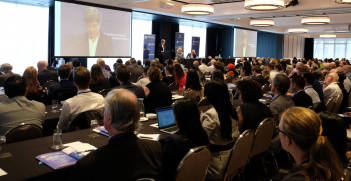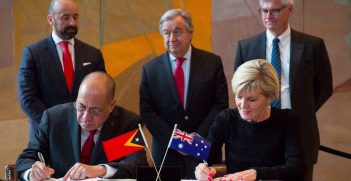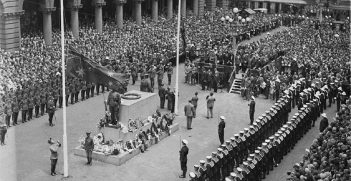31 July: The Week in Australian Foreign Policy

This week in Australian foreign policy; the strength of Australia-US ties reiterated through political and military collaboration, travel and travel talks with New Zealand, and deployment of medical aid to Papua New Guinea.
On 28 July, Minister for Foreign Affairs Marise Payne and Minister for Defence Linda Reynolds issued a joint statement on the 30th Australia-U.S. Ministerial Consultations (AUSMIN). Payne and Reynolds met with United States Secretary of State Michael Pompeo and Secretary of Defence Mark Esper in Washington DC. They discussed the future of the Australia-US alliance, including the path to support regional recovery from COVID-19 and to “build a secure, prosperous future for the Indo-Pacific.” The ministers and secretaries signed a classified Statement of Principles on Alliance Defence Cooperation and Force Posture Priorities in the Indo-Pacific, which “establishes a bilateral Force Posture Working Group to develop recommendations that will advance force-posture cooperation in the Indo-Pacific.”
The discussions at AUSMIN reiterated the importance of the Marine Rotational Force – Darwin, which is a key element of the Force Posture Initiatives. The secretaries and ministers also expressed “serious concerns over recent coercive and destabilising actions across the Indo-Pacific,” particularly around the China’s maritime claims in the South China Sea.
The statement on AUSMIN also mentions that a new working group will be created between the Department of Foreign Affairs and Trade and the Department of State to “monitor and respond to disinformation efforts” that have accompanied the COVID-19 pandemic.
Shadow Minister for Foreign Affairs Penny Wong responded to Payne and Reynolds’ statement on AUSMIN, welcoming the “pursuit of opportunities for cooperation in coordination with other likeminded and regional partners.”
Reynolds also announced on 24 July that Royal Australian Airforce (RAAF) aircraft and more than 150 RAAF personnel have been deployed in Guam to join exercises with the Royal Australian Navy and the United States.
Prime Minister Scott Morrison noted in a press conference at Parliament House on 24 July that he “had the opportunity to speak with [Canadian] Prime Minister Trudeau .. [French] President Macron, and [Israeli] Prime Minister Netanyahu” over the past week. Morrison referred to the importance of a “collegiate approach,” of working with other countries, to tackle COVID-19.
On 23 July, Minister for Trade, Tourism, and Investment Simon Birmingham announced that he had met virtually with New Zealand Minister for Trade and Export Growth David Parker to conduct the annual Closer Economic Relations discussions. The ministers resolved to “identify concrete action to alleviate the impact of COVID-19 on essential supplies” and committed to “strengthening bilateral cooperation to reinforce the rules-based global trading system.” They reaffirmed that the two countries are committed to introducing a trans-Tasman “safe travel zone as soon as it is safe to do so.”
Birmingham, Minister for Health Greg Hunt, and Minister for International Development and the Pacific Alex Hawke jointly announced on 28 July that Australia is sending an Australian medical assistance team to Papua New Guinea “to support our friend and neighbour as it manages a concerning rise in COVID-19 cases in recent days.” The ministers also noted that “the Government is planning for a further deployment in consultation with the Government of Papua New Guinea.”
Isabella Keith is an intern at AIIA National Office.
This article is published under a Creative Commons License and may be republished with attribution.





